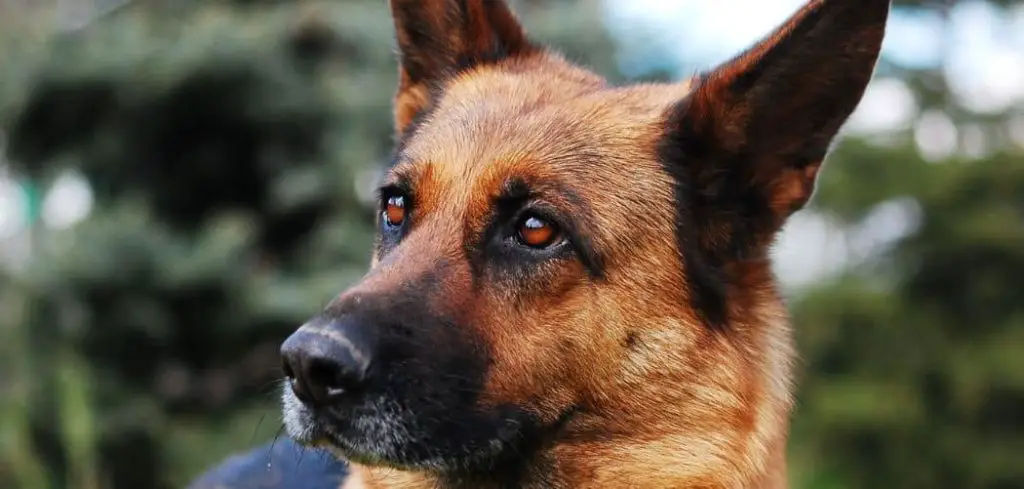Coughing in senior dogs can be worrisome, especially when it becomes persistent or severe.
It may indicate underlying health issues ranging from mild irritations to serious heart or lung conditions.
We outline the common reasons why an old dog may keep coughing, what you can do at home, and when to seek veterinary help.
Old Dog Keeps Coughing — Why It Happens
An old dog that keeps coughing often does so because of heart disease, lung problems such as chronic bronchitis or pneumonia, tracheal collapse, or even growths in the chest. Sometimes coughing can also be triggered by infections or irritants like dust and smoke.
In senior dogs, frequent coughing should not be ignored, as it often points to an underlying condition that needs veterinary attention.

Old Dog Keeps Coughing: Common Causes
Heart Disease
Heart conditions, such as congestive heart failure, can cause fluid buildup in the lungs and airways, leading to coughing.
Dogs may also show signs of fatigue, difficulty breathing, and decreased exercise tolerance. Left untreated, heart disease can worsen and severely impact an old dog’s quality of life.
Read more: Old Dog Gagging and Coughing (How to Help)
Chronic Bronchitis
Chronic bronchitis is inflammation of the airways that can persist for months or years.
It triggers a honking cough, especially at night or after activity. Owners may notice wheezing, gagging, or shortness of breath. Management typically involves medications and environmental adjustments to reduce irritants.
Respiratory Infections
Viral or bacterial infections can irritate the respiratory tract, causing coughing.
Symptoms often include nasal discharge, fever, lethargy, and decreased appetite. Prompt veterinary care ensures proper treatment with antibiotics or supportive therapies to prevent complications.
Collapsed Trachea
A weakened or collapsed trachea can make breathing noisy and trigger chronic coughing.
Dogs may exhibit a honking cough, gagging when excited, or difficulty breathing. This condition is especially concerning in older small breed dogs and requires veterinary evaluation for diagnosis and treatment.
Allergies or Environmental Irritants
Dust, pollen, smoke, or household cleaners can irritate your dog’s airways.
Coughing may be accompanied by sneezing, watery eyes, or itching. Reducing exposure and using air purifiers can help manage symptoms, but persistent coughing still warrants veterinary assessment.
Heartworm Disease
Heartworms live in the heart and pulmonary arteries, potentially causing chronic coughing in senior dogs.
Other signs include exercise intolerance, lethargy, and labored breathing. Early detection and treatment are critical to prevent severe complications and maintain quality of life.
What to Do If Your Old Dog Keeps Coughing
Monitor your dog’s coughing pattern and note triggers, frequency, and intensity.
Keep your home environment free from smoke, dust, and strong cleaning chemicals to reduce irritation.
Provide fresh water at all times to soothe the throat and support hydration.
Ensure your dog avoids overexertion while coughing persists, as activity can worsen symptoms.
Consult your veterinarian before using any over-the-counter medications or supplements, as some may be harmful to senior dogs.
When to Call or Visit Your Vet
Immediate veterinary attention is needed if coughing is accompanied by labored breathing, bluish gums, or collapse.
Persistent or worsening coughing, especially with lethargy, loss of appetite, or coughing up blood, also requires urgent evaluation.
Older dogs with known heart, lung, or systemic disease should be examined promptly if new coughing develops, as timely intervention can prevent severe complications.
A veterinarian can conduct chest X-rays, blood tests, or heartworm testing to determine the exact cause and recommend targeted treatment.
Read more: Old Dog Breathing Heavy (What You Should Know)
Key Takeaway
Coughing in older dogs can indicate a range of conditions from mild irritations to serious heart or lung disease. Observing patterns, maintaining a clean environment, and providing supportive care are important first steps.
Prompt veterinary evaluation is essential to diagnose underlying causes and provide effective treatment.
With attentive care, you can help your senior dog breathe easier and improve their overall comfort and well-being.
